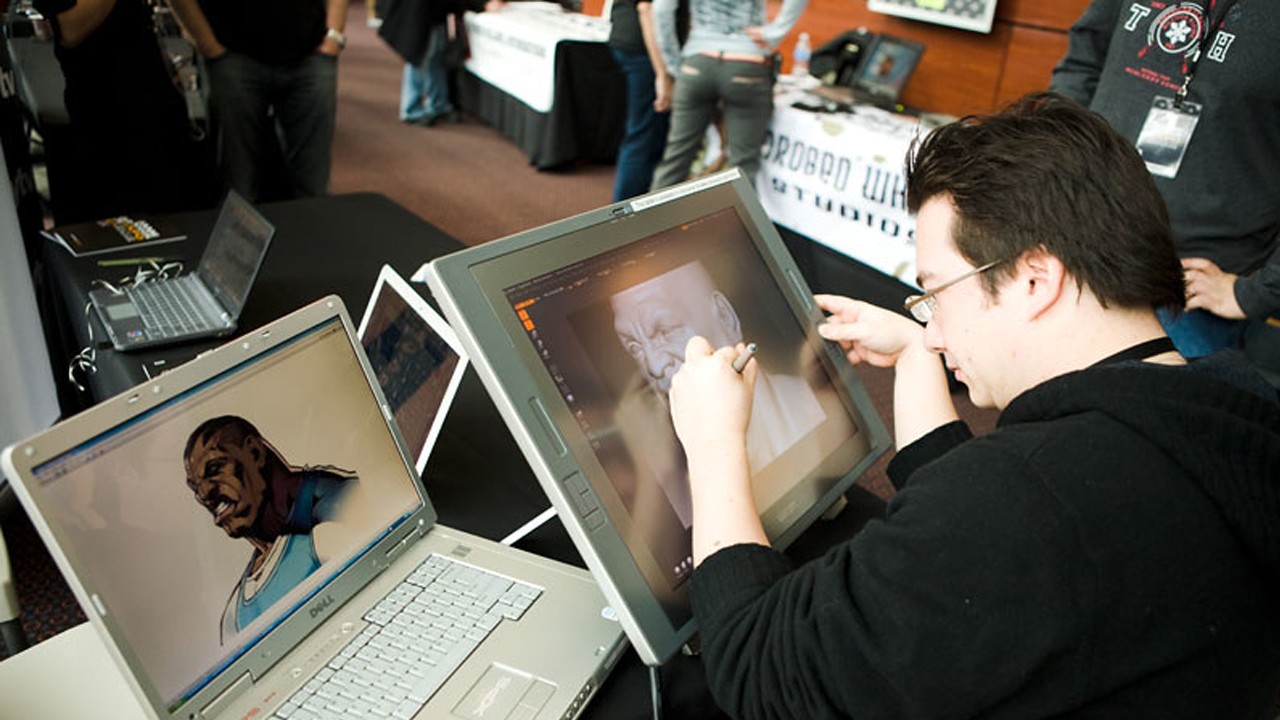Embarking on a journey to land a job in game development can seem daunting, yet it’s an adventure filled with possibilities. Whether you’re a coding wizard, a creative storyteller, or a design guru, breaking into this dynamic industry requires a blend of skill, passion, and strategy. This guide will navigate you through the essential steps to transform your dream into reality, offering insider tips and actionable advice to jumpstart your career in the world of game development. Let the quest begin!
Acquiring Relevant Educational Credentials
The journey to a successful career in game development begins with obtaining the right educational qualifications. This field, known for its competitive nature, requires not only a passion for gaming but also a solid foundation in relevant technical skills. A degree in computer science, game design, or a related field is often seen as the minimum requirement by many employers. These programs offer a comprehensive understanding of software development, computer graphics, and game mechanics, which are crucial for creating engaging and interactive gaming experiences.
Moreover, education in game development goes beyond traditional degrees. Many institutions now offer specialized courses and certifications that focus on specific areas of game development, such as level design, 3D modeling, and animation. These courses can provide hands-on experience with game engines and development tools like Unity and Unreal Engine, which are widely used in the industry. It’s important to build a portfolio of your work that demonstrates your skills and creativity. This portfolio can be a deciding factor in securing your dream job in the game development field.
Further Enhancing Your Qualifications
While formal education is crucial, staying updated with the latest technological advancements and software tools in game development is equally important. Participating in game jams, internships, and online communities can provide practical experience and valuable feedback from peers and professionals in the industry. These opportunities allow you to apply your theoretical knowledge in real-world scenarios, making you a more attractive candidate to potential employers.
- Computer Science or Game Design Degree
- Specialized Courses in 3D Modeling and Animation
- Certifications in Popular Game Engines like Unity or Unreal Engine
- Building a Strong Portfolio of Game Projects
- Engaging in Internships and Game Jams for Practical Experience
Building a Strong Portfolio
A strong portfolio is your golden ticket into the game development industry. It’s not just a collection of your work; it’s a testament to your skills, creativity, and passion for game development. To stand out, your portfolio needs to showcase not only your best work but also your diversity and ability to handle different aspects of game development. This is your chance to shine and demonstrate why you’re the perfect candidate for the job.
First and foremost, focus on quality over quantity. A few well-polished projects will make a much stronger impression than a multitude of unfinished or mediocre ones. Highlight projects that showcase your specialization in game development, whether that be in coding, art, design, or sound. Each project should tell a story, not just about the game itself but about the problems you faced, the solutions you crafted, and the impact of the final product. This narrative approach will not only make your portfolio more engaging but will also give potential employers insight into your problem-solving and creative thought process.
It’s also critical to include a variety of projects. If you’re a programmer, include code snippets or links to repositories. If you’re an artist, showcase different styles and mediums. This diversity demonstrates your versatility and ability to adapt to different styles and genres, a highly valued trait in the ever-evolving game industry. Remember to keep your portfolio updated with your latest work and ensure that all links and demos are working perfectly. An outdated or non-functional portfolio can be a major turn-off for potential employers.
| Component | Description | Why It’s Important |
|---|---|---|
| Quality Projects | Well-developed games or components you’ve created | Shows your highest level of skill and dedication |
| Diversity | Variety in types of games or roles you’ve tackled | Demonstrates versatility and adaptability |
| Problem-Solving | Examples of challenges faced and solutions found | Highlights critical thinking and creativity |
| Technical Skills | Programming languages, tools, and technologies you are proficient in | Shows your toolkit for creating games |
| Personal Projects | Independent or team projects initiated by you | Indicates initiative and passion for game development |
In the realm of game development, your portfolio is an essential tool for showcasing your abilities and landing your dream job. However, it’s not just about displaying what you’ve done; it’s about presenting yourself as a well-rounded, skilled, and passionate developer. Consider your portfolio as a platform for telling your professional story, one that highlights your journey, your growth, and your readiness to take on new challenges in the game development industry. Insightfully chosen projects, careful documentation of your creative process, and a clear demonstration of your problem-solving skills will set you apart in this competitive field. Keep refining your portfolio, stay abreast of industry trends, and continue developing your skills. With dedication and hard work, your portfolio will open doors to incredible opportunities in game development.
Networking in the Gaming Industry

Breaking into the game development arena often hinges not just on your skills and passion but also significantly on the people you know. Networking within the gaming industry can be a powerful tool to unlock opportunities that otherwise might be inaccessible. It’s about creating meaningful connections with individuals who share your enthusiasm for gaming, be they developers, artists, or marketers.
Attending industry conferences and workshops is a great way to start. These events are melting pots of creativity and innovation, where you can meet a diverse group of professionals. Introduce yourself, exchange contacts, and don’t hesitate to share what you are working on or your aspirations in game development. Being active on social media platforms, specifically LinkedIn and Twitter, can also amplify your presence in the gaming community. Engage with content, share your projects, and connect with industry leaders and peers. Remember, the goal is to build relationships, not just to add names to your contact list.
Another effective strategy is to contribute to open-source projects or game jams. These collaborative events are not only a fantastic way to hone your skills but also to showcase your work ethic and teamwork capabilities. Your involvement can make you a more attractive candidate to potential employers who often scout these platforms for new talent. Lastly, don’t underestimate the power of a well-crafted personal project. A unique game that you developed from scratch can be a compelling portfolio piece that grabs the attention of industry insiders.
- Attend industry conferences and workshops.
- Be active and engage on social media platforms like LinkedIn and Twitter.
- Exchange contacts and share your work or aspirations.
- Contribute to open-source projects or participate in game jams.
- Develop a unique personal project to showcase your skills.
Networking in the gaming industry requires a proactive approach and a genuine interest in forming connections. It’s about contributing to the community, sharing knowledge, and supporting others. By applying these strategies, you can significantly increase your visibility and chances of landing your dream job in game development.
Gaining Experience Through Internships
Embarking on a career in game development can be both thrilling and daunting. One of the most effective ways to break into this competitive field is through internships. These opportunities allow aspiring game developers to gain hands-on experience, develop technical skills, and build a professional network. Internships can be found at both large gaming companies and indie game studios, offering a range of experiences from game design to coding and marketing.
Securing an internship requires a combination of skill, perseverance, and a bit of luck. It’s essential to have a portfolio showcasing your work, whether it’s game mods you’ve created, levels designed in popular game engines, or coding projects. Tailor your applications to each company, emphasizing how your unique skills can contribute to their projects. Remember, the goal of an internship is not just to learn, but also to impress your supervisors and colleagues with your creativity and work ethic, potentially leading to a full-time position.
Networking plays a crucial role in finding internship opportunities. Attend industry conferences, participate in game jams, and engage with the game development community on social media and forums. These connections can lead to internship opportunities and valuable mentorships. Internships are more than just a stepping stone; they are a foundation upon which a successful game development career is built.
Maximizing Your Internship Experience

To make the most out of your internship, it’s crucial to be proactive, eager to learn, and open to feedback. Take on challenges with enthusiasm, ask questions, and seek out mentorship from experienced developers. An internship provides a unique chance not only to observe but to contribute to real projects, offering insights into the development process that are rarely found in classroom settings.
Internship Insights Table
| Aspect | Advice | Outcome |
|---|---|---|
| Networking | Engage actively with professionals and peers. | Builds valuable connections and opens up job opportunities. |
| Portfolio | Continuously update with new work. | Demonstrates growth and skills to potential employers. |
| Learning | Seek feedback and learn from every task. | Improves skills and professional adaptability. |
| Contribution | Volunteer for projects and show initiative. | Increases visibility and showcases work ethic. |
| Mentorship | Find a mentor within the company. | Provides guidance and accelerates professional growth. |
Mastering the Job Interview Process
The journey to securing a position in game development involves not just showcasing your technical prowess but also excelling in the job interview process. This critical phase requires preparation, understanding the company’s culture, and demonstrating how your skills and experiences align with their needs. Firstly, researching the company’s portfolio and recent projects provides valuable insights that can be woven into your responses, showing a genuine interest and understanding of their work. Tailoring your portfolio to include relevant work or projects that reflect the company’s style or genre can set you apart from other candidates.
Moreover, the ability to articulate your thought process and problem-solving methods is crucial. Interviewers are often interested in how you approach challenges, as much as the outcomes. This is your opportunity to highlight projects where you overcame obstacles, learned new technologies, or contributed significantly to a team effort. Additionally, soft skills such as teamwork, communication, and adaptability are highly valued in the game development industry. Be prepared to discuss instances that demonstrate these competencies.
Lastly, asking insightful questions about the company’s future projects, team dynamics, or development processes indicates your enthusiasm and proactive mindset. It’s an opportunity to engage further with the interviewer and leave a memorable impression.
Additional Insights on Navigating Game Development Interviews
| Aspect | Importance | Tips |
|---|---|---|
| Company Research | High | Review recent projects, press releases, and their game portfolio. |
| Portfolio Relevance | Crucial | Include projects that showcase relevant skills or genres. |
| Problem-Solving Discussion | Essential | Prepare examples of how you tackled challenges in past projects. |
| Soft Skills | Valuable | Highlight teamwork, adaptability, and communication through stories. |
| Questions for Interviewer | Important | Ask about the company’s future direction, team structure, or development methodologies. |
In conclusion, mastering the job interview process in the game development industry involves thorough preparation, from understanding the company and tailoring your portfolio to showcasing your problem-solving skills and asking insightful questions. By emphasizing both your technical abilities and soft skills, you can navigate the interview confidently and edge closer to securing your dream job in this dynamic field.

Is a game developer and writer with over seven years of experience in the gaming industry. Specializing in game design, development trends, and emerging technologies. He has worked on indie game projects and larger development teams, sharing his insights to help aspiring developers navigate the evolving world of game creation. Ethan’s articles focus on practical tips, game mechanics, and tools to inspire creativity in the gaming community.






